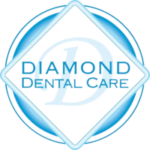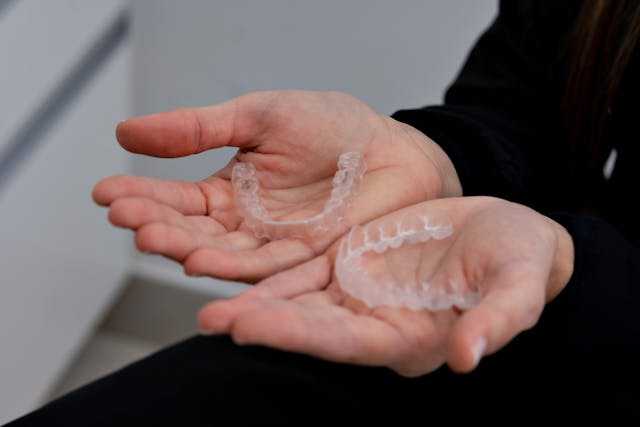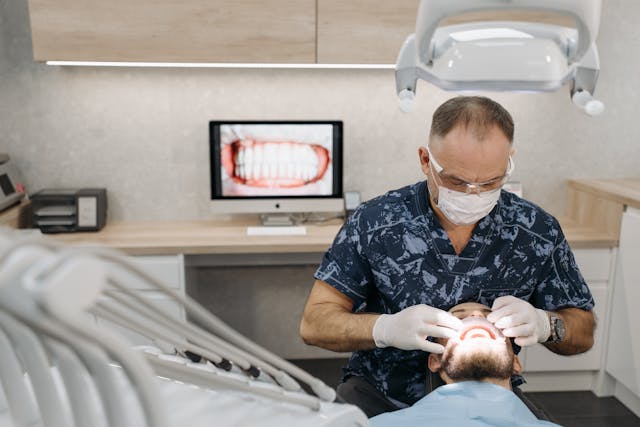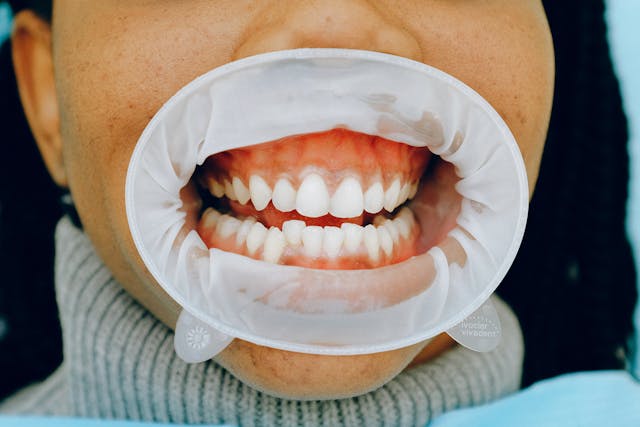Introduction
We all know that smoking is bad for our lungs, but did you know it can also wreak havoc on your oral health? Whether you’re a long-time smoker or someone who’s just picked up the habit, understanding how smoking affects your mouth is crucial. From bad breath to more serious conditions like gum disease and oral cancer, the impact is significant. Let’s dive into the details of how smoking harms your oral health and what you can do about it.
At Diamond Dental Care, there are several ways we can address most aesthetic issues, so we will conduct an examination, take x-rays, discuss the timeframe we are working with, and then present you and your parents with a variety of options to choose from. Since some have set time constraints, it is best to schedule your appointment with our office as soon as possible.
Since some have set time constraints, it is best to schedule your appointment with our office as soon as possible. You can do so by calling (909) 860-7579. You can also follow us on Facebook or provide your valuable feedback at Yelp. Thanks.
The Basics of Oral Health
Oral health is more than just having a bright smile. It encompasses the health of your teeth, gums, and the entire oral-facial system that allows us to smile, speak, and chew. Good oral hygiene practices, such as brushing twice daily, flossing, and regular dental check-ups, are key to maintaining healthy teeth and gums. But even with the best care, smoking can undermine all your efforts.
Understanding Smoking
Smoking comes in many forms—cigarettes, cigars, pipes, and even e-cigarettes. Each of these can have devastating effects on your oral health. In the U.S., despite widespread knowledge of the risks, millions of people continue to smoke. Whether it’s due to addiction, stress, or social influences, smoking remains a prevalent issue.
How Smoking Impacts
The Immediate Effects of Smoking on Oral Wellbeing
The moment you light up, your mouth begins to suffer. One of the most immediate effects is bad breath, also known as “smoker’s breath.” The chemicals in tobacco smoke linger in your mouth, creating a persistent, unpleasant odor. Your teeth, once pearly white, can quickly turn yellow or brown due to nicotine and tar. Additionally, smoking dulls your sense of taste and smell, making food less enjoyable.
Long-Term Effects of Smoking on Oral Wellbeing
While the immediate effects are concerning, the long-term consequences are even more alarming. Smokers are at a much higher risk of developing gum disease, a serious infection that can lead to tooth loss. Over time, the damage doesn’t stop at your gums—smoking is one of the leading causes of oral cancer, a life-threatening condition. The effects can be devastating, not just for your oral wellbeing but for your overall well-being.
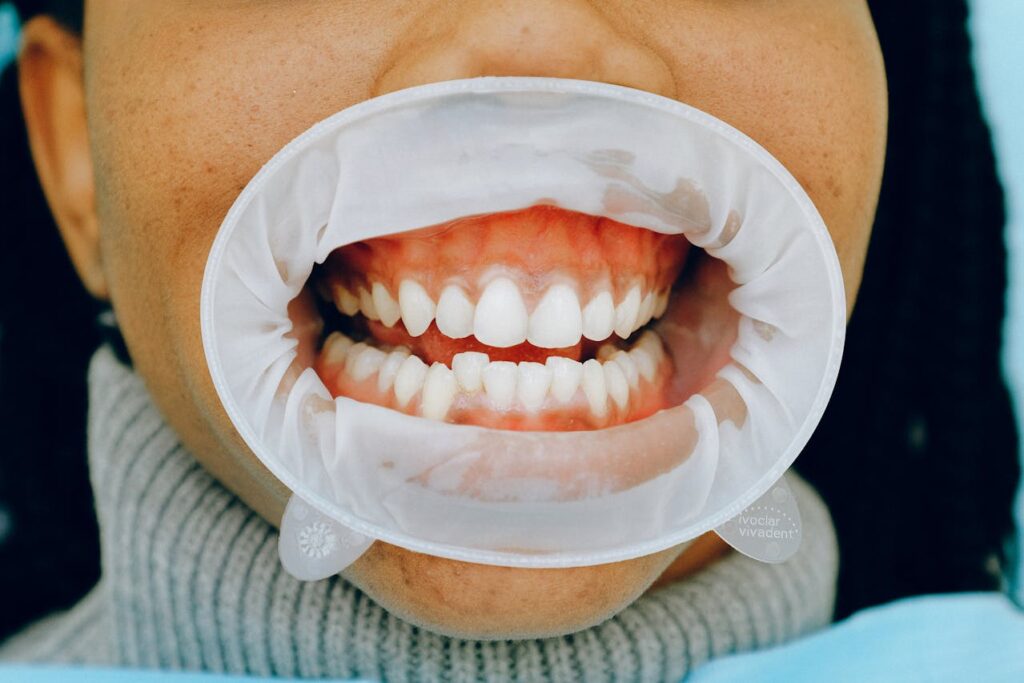
The Connection Between Smoking and Gum Disease
Gum disease, or periodontal disease, is a common issue among smokers. But why is this the case? Smoking weakens your immune system, making it harder for your body to fight off infections in the gums. As a result, smokers are more likely to develop periodontal disease, which can cause the gums to pull away from the teeth, leading to tooth loss if left untreated.
Smoking and Oral Cancer
The link between smoking and oral cancer is well-documented. Tobacco contains carcinogens that can cause cells in the mouth to mutate and become cancerous. Smokers are at a much higher risk of developing cancers of the mouth, throat, and esophagus. Statistics show that over 90% of people with oral cancer use tobacco, making smoking the most significant risk factor.
Signs of Oral Wellbeing Problems Caused by Smoking
It’s important to recognize the signs of smoking-related oral health problems early. Common symptoms include persistent bad breath, bleeding gums, loose teeth, and sores that don’t heal. If you notice any of these symptoms, it’s crucial to seek dental care immediately. Early detection can make a big difference in managing and treating these conditions.
Solutions to Combat the Effects of Smoking on Oral Health
Quitting Smoking
The best thing you can do for your oral health—and your overall health—is to quit smoking. The benefits of quitting are almost immediate. Your risk of gum disease, tooth loss, and oral cancer begins to decrease as soon as you stop smoking. There are many resources available to help you quit, including nicotine replacement therapies, prescription medications, and support groups.
Oral Hygiene Tips for Smokers
If quitting isn’t an option yet, there are steps you can take to minimize the damage. Brushing and flossing more frequently can help reduce plaque buildup and combat bad breath. Using a mouthwash specifically designed for smokers can also help to remove stains and freshen your breath. It’s also essential to use a toothbrush with soft bristles to avoid further irritating your gums.
Regular Dental Visits
Smokers should visit their dentist more frequently than non-smokers. Professional cleanings can help remove the buildup of plaque and tartar that can lead to gum disease. Your dentist can also monitor your oral health closely, catching any issues early before they become severe. At The Diamond Dental Care in Diamond Bar, California, we offer specialized services for smokers to help maintain their oral health.
The Role of Professional Dental Care
Why Regular Check-Ups are Crucial
Regular dental check-ups are vital for everyone, but they’re especially important for smokers. These visits allow your dentist to detect any early signs of gum disease, tooth decay, or oral cancer. Preventative care, such as professional cleanings and fluoride treatments, can help mitigate the damage caused by smoking.
Services Offered by The Diamond Dental Care
At The Diamond Dental Care in Diamond Bar, California, we understand the unique challenges that smokers face regarding oral health. Our comprehensive oral exams are designed to catch any issues early on. We offer specialized treatments tailored to the needs of smokers, including deep cleanings, whitening services, and oral cancer screenings.
Preventative Measures for Smokers
Diet and Oral Health
What you eat plays a significant role in your oral health. For smokers, it’s even more critical to consume foods that can help protect your teeth and gums. Foods rich in calcium, such as dairy products, can help strengthen your teeth. Leafy greens and crunchy vegetables can help clean your teeth naturally and stimulate saliva production, which helps to wash away food particles and bacteria.
Lifestyle Changes to Improve Oral Health
In addition to quitting smoking, making other lifestyle changes can also benefit your oral health. Limiting your alcohol consumption is essential, as alcohol can dry out your mouth and make you more susceptible to gum disease. Avoiding sugary foods and drinks can also help prevent tooth decay, which is more common in smokers.
The Importance of Awareness
One of the most powerful tools in combating the effects of smoking on oral health is awareness. Educating yourself and others about the risks of smoking can help encourage healthier choices. Sharing your knowledge with friends and family can make a difference, and you might even inspire someone else to quit smoking.
Conclusion
Smoking has far-reaching effects on your oral health, from bad breath and stained teeth to more severe conditions like gum disease and oral cancer. The good news is that it’s never too late to make a change. Quitting smoking and adopting better oral hygiene practices can significantly improve your oral health. And with the help of a trusted dental professional, like those at The Diamond Dental Care in Diamond Bar, California, you can take the necessary steps to protect your smile for years to come.
FAQs
How does smoking cause gum disease?
Smoking weakens the immune system, making it harder for your body to fight off infections in the gums, which can lead to periodontal disease.
Can smoking-related oral health issues be reversed?
Some issues, like bad breath and staining, can be managed, but more severe conditions like gum disease and oral cancer may require professional treatment.
How soon after quitting smoking will my oral health improve?
Improvements can start as soon as you quit, with your risk of gum disease and oral cancer decreasing over time.
What are the best oral hygiene practices for smokers?
Frequent brushing and flossing, using a mouthwash designed for smokers, and regular dental visits are key to maintaining oral health.
How can I find a dentist experienced in treating smokers?
Look for dental practices that offer specialized services for smokers, like The Diamond Dental Care in Diamond Bar, California.
